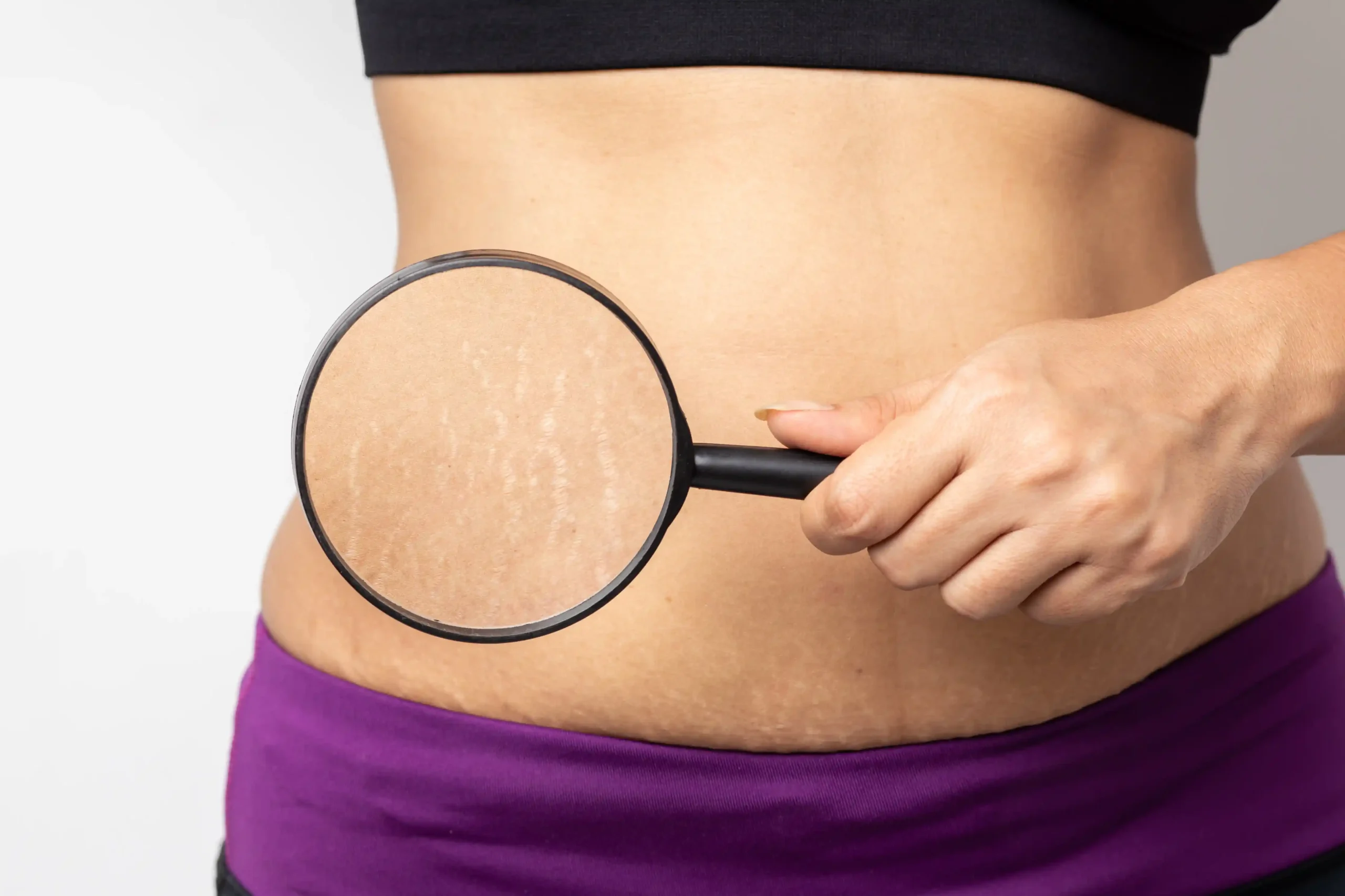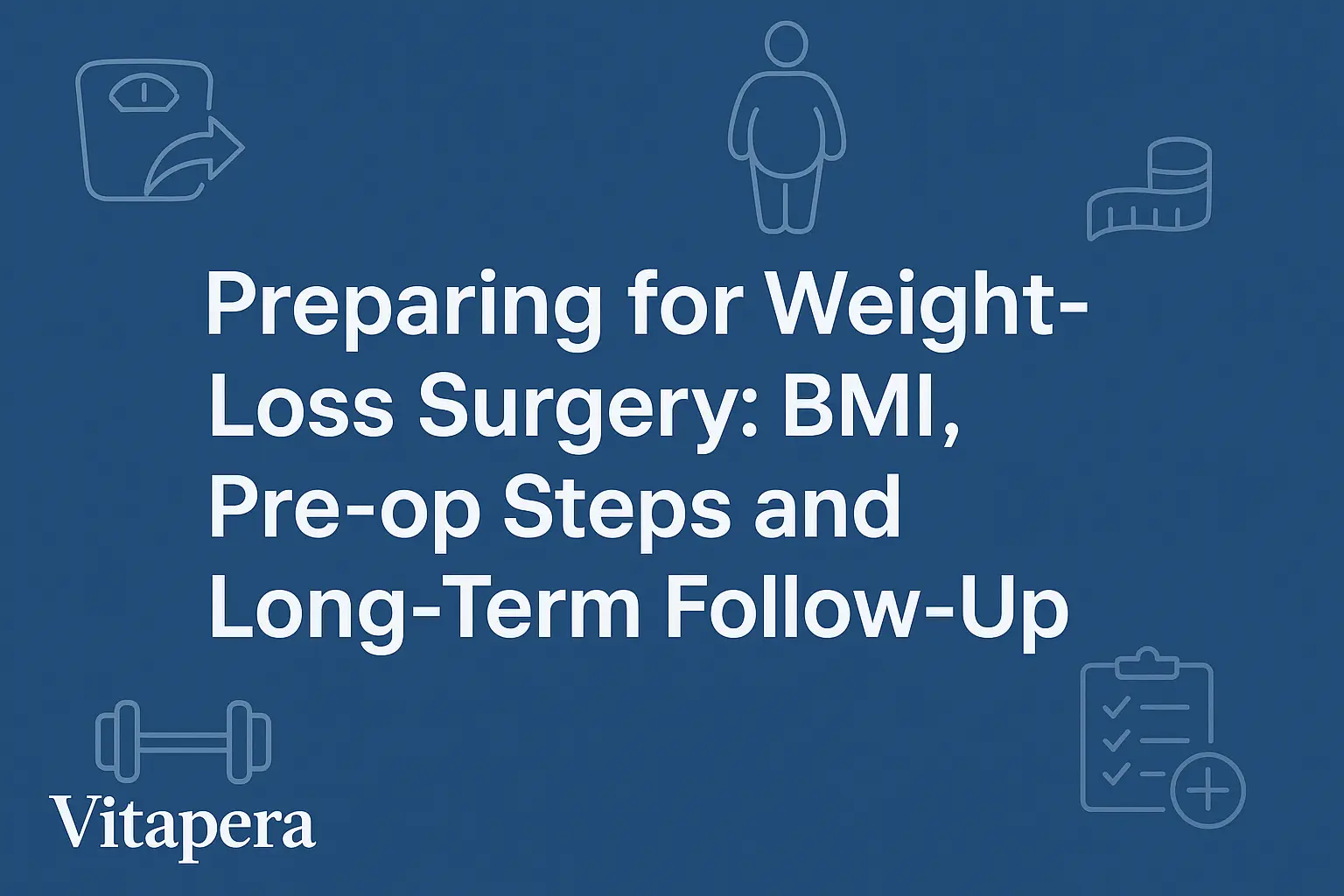A wonderful meal can simply be transformed into art. At times, the pleasure we get from eating can grow into an unhealthy habit, which can be harmful to our health. After bariatric surgery, this is something we need to be even more careful about.
One of the most crucial considerations for bariatric patients is meal planning. Because our main goal for bariatric surgery is to live a long and healthy life, patients must eat a balanced diet that is part of that lifestyle. Plates with balanced quantities and great nutritional value keep you in shape and improve your mood substantially. So, if you’re wondering “What distinguishes this diet?” keep reading the detailed guide we’ve created for you!
Summary of the Content
- Meal planning is essential for bariatric patients to ensure a balanced diet and support long-term health.
- After surgery, focus on lean proteins, soft-cooked vegetables, healthy fats, whole grains, and low-sugar fruits for optimal nutrition.
- Calorie intake for bariatric patients typically ranges from 600 to 1,800 calories per day, depending on the stage of recovery.
- The 20-20-20 rule helps manage portion sizes and eating pace to avoid overeating after surgery.
- The 30-Minute Rule advises avoiding liquids before, during, and after meals to prevent feeling overly full.
- Key meal prepping tips include focusing on protein, choosing soft foods, managing portions, and staying hydrated.
- Vitapera offers expert support and guidance to help you achieve your health goals after bariatric surgery.
What is Meal Planning?
Meal planning is a method of preparing one’s meals for the day or several days or even the whole week in advance. It entails preparing and dividing food into meals that are convenient to eat and carry along with one in a bid to embrace healthy meals. This practice is quite helpful especially for those who have had gastric sleeve surgery.
How do you plan meals for Gastric Bypass?
After gastric bypass surgery, due to drastic stomach reduction, there’s a need for change to smaller, more frequent meals to accommodate the altered digestive capacity.
Protein is essential for muscle maintenance and satiety, and sources such as lean meats, fish, tofu, eggs, and dairy should be prioritized. To manage weight and avoid dumping syndrome, limit carbohydrate and sugar intake.
Choosing nutrient-dense meals such as colorful fruits and vegetables, whole grains, and healthy fats helps guarantee that important vitamins and minerals are absorbed despite the reduced intake. Staying hydrated is essential, but it’s best to avoid drinking significant amounts of liquids during meals.
Carbonated and high-calorie drinks and foods should be avoided. Chewing thoroughly assists digestion, and taking required vitamin and mineral supplements is critical.
Establishing a consistent eating schedule, paying attention to hunger and fullness cues, and collaborating with healthcare specialists for tailored assistance are all important parts of efficient post-gastric bypass meal planning. Follow-up appointments help to assess progress and change the meal plan as needed.
Best Foods to Eat After a Gastric Procedure
Food is fuel, they say. Eating can easily be one of the most enjoyable activities. This enjoyment, however, can occasionally lead to overeating and subsequent bad habits. This is not a risk you should take after bariatric surgery.
Following gastric surgery, it is critical to ingest high-nutritional-value foods. You might feel confused as to where to start, especially if you’re not familiar with the idea of eating healthy. So, here are a few nutritious ideas that might be helpful when you plan your meals:
Lean Proteins
Protein-rich foods are the best option for maintaining your form while maintaining your muscle mass. These foods can include chicken, turkey, fish, lean beef, tofu, eggs, and low-fat dairy products.
Soft Cooked Vegetables
Vegetables that have been steamed or boiled are easier to digest, especially in the early stages of your recovery. Also, they’re packed with vitamins and minerals that your body desperately needs while healing. You can choose nutrient-dense foods like spinach, carrots, and broccoli and combine them with the high-protein options mentioned above.
Healthy Fats
Healthy fats are powerful boosters for your metabolism, adding them to your diet is also good for your digestion. Avocados, olive oil, and nuts are all good sources of healthful fats. These can provide you with energy and help you absorb fat-soluble vitamins.
Whole Grains
Whole grains can make you feel full easily and are necessary for a healthy diet. Fiber and necessary nutrients are provided by quinoa, brown rice, whole wheat pasta, and oats. Begin with small amounts that are well-cooked for simpler digestion.
Low-Sugar Fruits
Fruits have multiple benefits for your body and general health. But some of them can be very high in sugar, which is something you should avoid. However, if you choose fruits that are high in fiber and low in sugar, you’re safe! Berries, melons, and apples (without the skin) are excellent choices. In the early stages, avoid fruits with rough skins or seeds.

Best Foods to Eat After a Gastric Procedure
Food is fuel, they say. Eating can easily be one of the most enjoyable activities. This enjoyment, however, can occasionally lead to overeating and subsequent bad habits. This is not a risk you should take after bariatric surgery.
Following gastric surgery, it is critical to ingest high-nutritional-value foods. You might feel confused as to where to start, especially if you’re not familiar with the idea of eating healthy. So, here are a few nutritious ideas that might be helpful when you plan your meals:
Lean Proteins
Protein-rich foods are the best option for maintaining your form while maintaining your muscle mass. These foods can include chicken, turkey, fish, lean beef, tofu, eggs, and low-fat dairy products.
Soft Cooked Vegetables
Vegetables that have been steamed or boiled are easier to digest, especially in the early stages of your recovery. Also, they’re packed with vitamins and minerals that your body desperately needs while healing. You can choose nutrient-dense foods like spinach, carrots, and broccoli and combine them with the high-protein options mentioned above.
Healthy Fats
Healthy fats are powerful boosters for your metabolism, adding them to your diet is also good for your digestion. Avocados, olive oil, and nuts are all good sources of healthful fats. These can provide you with energy and help you absorb fat-soluble vitamins.
Whole Grains
Whole grains can make you feel full easily and are necessary for a healthy diet. Fiber and necessary nutrients are provided by quinoa, brown rice, whole wheat pasta, and oats. Begin with small amounts that are well-cooked for simpler digestion.
Low-Sugar Fruits
Fruits have multiple benefits for your body and general health. But some of them can be very high in sugar, which is something you should avoid. However, if you choose fruits that are high in fiber and low in sugar, you’re safe! Berries, melons, and apples (without the skin) are excellent choices. In the early stages, avoid fruits with rough skins or seeds.
How many meals should a bariatric patient eat?
The quantity of meals a Bariatric patient should eat is individual, and it is critical to obtain this information from your doctor. It is critical that you follow your doctor’s directions in the days following the operation as well as throughout the procedure. In general, the patient begins a liquid diet shortly following surgery. After reaching this stage, the eating schedule can be broken down into six minimal meals.

How many calories should a bariatric patient eat to lose weight?
It is critical to monitor calorie consumption following Bariatric surgery. Calorie intake can be controlled by using balanced plates and small servings. Caloric recommendations vary, although in the early stages, they may range from 600 to 1,000 calories per day, eventually increasing to 800 to 1,800 calories or more as the patient’s tolerance for food improves.
What is the 20 20 20 rule after bariatric surgery?
We discussed the necessity of calorie intake in maintaining your shape and health, but sometimes excess is out of our hands. Some approaches may be employed to make these moments mindful and peaceful for the patient, as well as to reach a rapid solution. The 20-20-20 rule is a dietary guideline that is frequently recommended following bariatric surgery to encourage attentive eating and minimize overeating.
After every 20 bites, stop eating
After around 20 bites, you should pause and check your fullness. This helps to prevent binge eating and allows your body to more efficiently signal satiety.
Wait 20 seconds
Wait around 20 seconds after pausing at 20 bites before determining whether or not to continue eating. This little delay allows your brain to register the sensation of fullness and helps prevent overeating.
Check for fullness for 20 minutes
Finish your dinner in around 20 minutes. This is a common period for the brain to get fullness signals from the stomach. Eating more slowly can help to avoid the discomfort and difficulties that come with overeating following bariatric surgery.
What is the 30-Minute Rule for Bariatric Surgery?
20-20-20 is not the only method that makes it mentally easier to maintain your form. There is another technique that will make it easier for you to keep up with your shrinking stomach after surgery: The 30-minute rule. Because your stomach is smaller after surgery, you should avoid drinking liquids for 30 minutes before, during, and after meals. Not drinking keeps you from being overly full before you’ve finished your protein.
Key Tips for Meal Prepping After Gastric Sleeve Surgery
1. Focus on Protein
Why: Protein is important to rebuild and repair muscles and keep them up.
How: Include chicken, turkey, fish, tofu, and eggs as they are sources of lean proteins. Try to have protein shakes or bars with you in case you are feeling hungry.
2. Choose Soft and Mild Foods that are Easy to Chew and Digest
Why: Your stomach will be easily irritated, so only take foods that are easy on the stomach.
How: Some of the examples of such foods include soft-cooked vegetables, low-fat dairy products, and well-cooked meats. It is best to start with soft foods such as peeled fruits and vegetables, and tender meats.
3. Portion Control is Key
Why: Gastric sleeve surgery in particular significantly decreases the size of the stomach.
How: Divide the food into smaller plates and always take smaller quantities to prevent overeating. Strive for portions that are between 2 to 4 ounces.
4. Plan for Balanced Meals
Why: Protein, fats, and carbohydrates are needed in moderation to meet your body’s daily requirements.
How: To start with, plan to take foods that contain proteins, a small amount of whole grains or starch, and vegetables.
5. Stay Hydrated
Why: It is important to note that water is crucial in the digestion process and for the general well being of the human body.
How: Stay hydrated by drinking water throughout the day; however, refrain from drinking water half an hour before and after eating.
6. Incorporate Low-FODMAP Foods
Why: Foods that are low in FODMAPs are generally better tolerated and do not trigger IBS symptoms.
How: Some of the foods that you should include are carrots, spinach, and bananas. Do not consume foods that are high in FODMAPs such as onions, garlic and beans.
7. Prepare in Bulk
Why: Meal prepping helps to save time and guarantees that you will have healthy food at hand.
How: Prepare large servings of protein, veggies, and grains and divide into meal sizes.
8. Label and Store Properly
Why: Storing food in the right manner also helps to increase the time that your meals will last and also aid in keeping your kitchen neat.
How: It is recommended that the storage containers should be clean and clearly labeled. Store meals that you do not plan to consume within the next couple of days to prevent spoiling.
9. Track Nutrients
Why: Nutrition is also crucial to address after the surgery and it is advisable to consult with a dietitian to have a proper nutrition plan.
How: One can try using a food diary or an application that records all the protein eaten, vitamins, and any other nutrient.
10. Consult with a Dietitian
Why: A dietitian can provide guidance tailored to your particular situation.
How: Consult a dietitian and develop a meal plan that would address your nutritional needs and the recommendations for patients who have undergone surgery.
With these tips, you will be able to make your post-surgery meal prepping easy and fun, and stick to your recovery and healthy diet plan.
Healthy Meal Prep Ideas for Gastric Sleeve Patients
Breakfast
- Greek Yogurt with Berries – 231 calories
- Egg Muffins (with cheese) – 223 calories
- Overnight Oats – 205 calories
Lunch
- Chicken Salad – 267 calories
- Turkey and Veggie Wrap – 155 calories
- Quinoa Salad – 244 calories
Snack
- Hummus and Baby Carrots – 125 calories
- Cottage Cheese with Pineapple – 101 calories
- Protein Balls – 100
Dinner
- Baked Salmon with Broccoli – 288 calories
- Stuffed Bell Peppers – 393 calories
- Chicken and Veggie Stir-Fry – 246 calories
The Gist: Expert Solutions with Vitapera
Working with a skilled team will be the best decision you can make as you strive to be the greatest version of yourself. Vitapera is delighted to help you on this journey with its expertise and dependability! You can contact our clinic using our contact information for advice on any subject, or you can arrange an appointment and begin your journey right now.
FAQ
What should I focus on for protein intake after gastric sleeve surgery?
Protein is necessary for your body’s healing and muscle rebuilding after your gastric sleeve surgery. Ensure that you take foods that are rich in protein such as the lean meats, poultry and fish. You may want to add in protein shakes or bars as additional choices to aid in the consumption of protein in your diet.
What kind of foods are best for the early stages of post-surgery?
To begin with, avoid taking hard and difficult to digest meals when you are recovering. Concentrate on taking a balanced diet of foods that have well cooked vegetables, lean protein and low fat dairy products. Steer clear of foods that are likely to cause discomfort to your stomach such as tough or raw foods.
How can I manage portion sizes after gastric sleeve surgery?
One has to be very careful on the amount of food one takes since the stomach capacity is much smaller. Choose smaller plates, and divide your food into them to avoid overeating. Try to consume a serving size of 2-4 ounces for your meals to fit into your new nutritional plan.
How can I ensure my meals are nutritionally balanced?
An example of a balanced meal plan is one that is suitable for meeting the body’s nutritional needs. Ensure that every meal you take consists of protein, a small amount of whole grain or starchy vegetables, and vegetables. This will assist in ensuring that you take a balanced diet as you avoid the junk foods.
How can I stay hydrated after gastric sleeve surgery?
Water intake is essential to the overall health of your body and to the digestive system. Ensure that you take water all through the day but do not take any fluid half an hour before and after eating a meal to reduce the feeling of being bloated. This will assist in the management of your fluid intake to a certain extent.
What are low-FODMAP foods and why are they important for gastric sleeve patients?
FODMAP foods are difficult to digest and can cause discomforts; hence, low-FODMAP foods are recommended. Ensure that you take foods that are rich in fiber like carrots, spinach, and bananas while refraining from foods that are high in FODMAP such as onions and garlic to help boost your digestive system.
How can I efficiently prepare meals in advance for the week?:
Having meals prepared in advance is more efficient and guarantees that there will be no temptation to eat junk food. Prepare re-heatable proteins, vegetables, and grains in the quantities that would last one a week and then pack into smaller containers. This method can be convenient when organizing your meals.
What are some tips for storing and labeling meal prep containers?
Storing and labeling your meal prep containers can help in preserving the meals you make. Ensure that you use appropriate, labeled containers and ensure that they are stored in a refrigerator or freezer as the case may be. This is because this practice assists in keeping the meals well arranged and fresh.
How can I track my nutritional intake after surgery?
This aspect helps you to get the right nutrients that your body needs in order to achieve the set dietary objectives. You can use a food diary application or just a paper and a pen to track your protein, vitamins, and other necessary nutrients. This way, you will be in a position to manage your nutrition status.
Why is consulting with a dietitian important after gastric sleeve surgery?
A dietitian will help you with the guidelines of your diet after the surgery. A dietitian can assist in the preparation of a food intake plan that would suit your nutritional requirements and make sure you adhere to your diet prescription.











